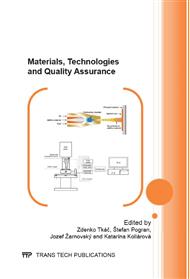p.87
p.95
p.103
p.109
p.117
p.123
p.131
p.137
p.143
Use of Alternative Fuels at Selected Types of Vehicles
Abstract:
Every car needs for operation, if possible, the highest quality fuel. Fossil fuels produced from crude oil by conventional technology are being increasingly replaced by alternative fuels. It is caused by new technologies that allow combustion of such fuels and, at the same time, provide economically more efficient operation of cars. From the perspective of ecology, they are also of great importance when it comes to meeting the strict emission standards of the European Union. The experiment compares two types of alternative propulsion with LPG and CNG at selected makes of Fiat cars with 1.4 litre engines. These engines can also utilize conventional fuels – petrol and are mass-produced directly from the factory. The measurements themselves were carried out during predetermined driving cycles such as urban, extra-urban and highway. All the three categories of measurements were carried out under normal driving conditions in a standard manner in compliance with all traffic regulations. Based on all measurements obtained from both engines with LPG and CNG propulsion, we found that the car with the LPG engine became economically more advantageous. The benefit was found in expenses return with this system as well as in measured consumption, prices and availability of filling stations.
Info:
Periodical:
Pages:
131-136
DOI:
Citation:
Online since:
September 2013
Authors:
Keywords:
Price:
Сopyright:
© 2013 Trans Tech Publications Ltd. All Rights Reserved
Share:
Citation:


